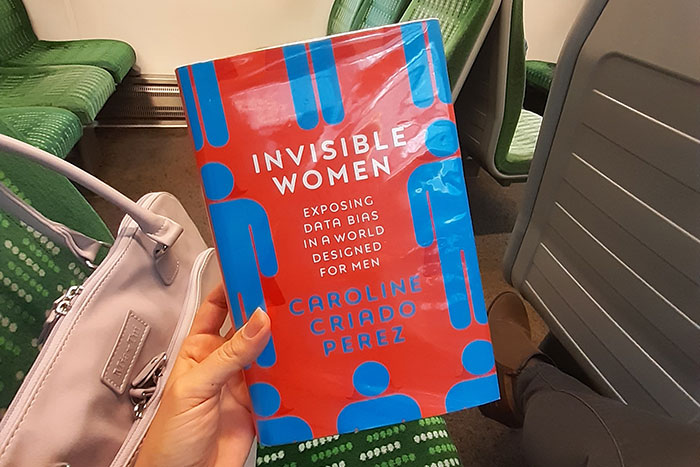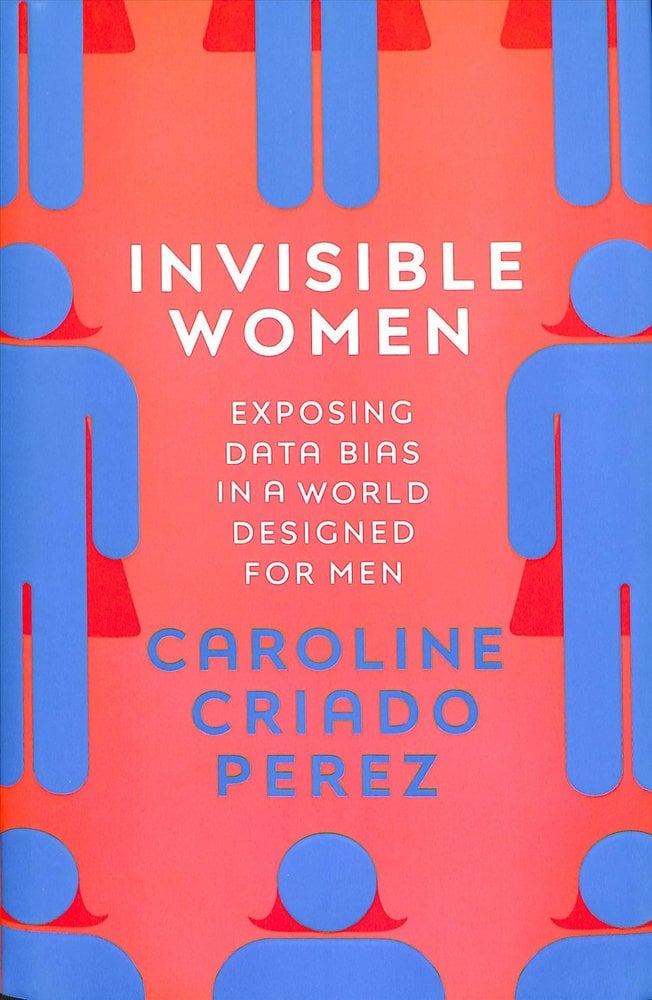

Women in Britain are 50% more likely to be misdiagnosed following a heart attack: heart failure trials generally use male participants. Most offices, we learn, are five degrees too cold for women, because the formula to determine their temperature was developed in the 1960s based on the metabolic resting rate of a 40-year-old, 70kg man women’s metabolisms are slower. This is a man’s world, we learn, because those who built it didn’t take gender differences into account. Criado Perez has assembled a cornucopia of statistics – from how blind auditions have increased the proportion of female players hired by orchestras to nearly 50%, to the good reasons why women take up to 2.3 times as long as men to use the toilet. It’s a smart strategy, therefore, to invite readers to view this timeworn topic through the revealing lens of data, bringing to light the hidden places where inequality still resides. When the writer and activist Caroline Criado Perez campaigned to have a female historical figure on the back of sterling banknotes, one man responded: “But women are everywhere now!” A recent large survey revealed that more than two thirds of men in Britain believe that women now enjoy equal opportunities. We mistake our fatigue about feminism for the exhaustion of patriarchy. Unfortunately for women, though, the hoary old problems of discrimination, violence and unpaid labour are still very much with us. The attention of a jaded public and neophiliac media may have been aroused by #MeToo, with its connotations of youth, sex and celebrity, but for the most part it has drifted recently towards other forms of prejudice, such as transphobia. And in medical research, women have largely been excluded from studies and textbooks, leaving them chronically misunderstood, mistreated, and misdiagnosed.īuilt on hundreds of studies in the United States, in the United Kingdom, and around the world, and written with energy, wit, and sparkling intelligence, this is a groundbreaking, highly readable exposé that will change the way you look at the world.The problem with feminism is that it’s just too familiar. Cities prioritize men’s needs when designing public transportation, roads, and even snow removal, neglecting to consider women’s safety or unique responsibilities and travel patterns. Product designers use a “one-size-fits-all” approach to everything from pianos to cell phones to voice recognition software, when in fact this approach is designed to fit men. Examining the home, the workplace, the public square, the doctor’s office, and more, Criado Perez unearths a dangerous pattern in data and its consequences on women’s lives. And women pay tremendous costs for this insidious bias: in time, in money, and often with their lives.Ĭelebrated feminist advocate Caroline Criado Perez investigates this shocking root cause of gender inequality in Invisible Women. But because so much data fails to take into account gender, because it treats men as the default and women as atypical, bias and discrimination are baked into our systems. From economic development to health care to education and public policy, we rely on numbers to allocate resources and make crucial decisions. Winner of the 2019 Royal Society Science Book Prizeĭata is fundamental to the modern world.

Winner of the 2019 Financial Times and McKinsey Business Book of the Year Award Caroline Criado Perez ’s Invisible Women: Data Bias in a World Designed for Men is a landmark, prize-winning, international bestselling examination of how a gender gap in data perpetuates bias and disadvantages women.


 0 kommentar(er)
0 kommentar(er)
